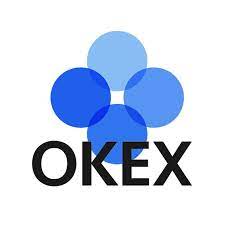Finding a broker has never been easier.
Regardless of how or what you trade, the broker you select should be easy to use, cheap, and provide all you need to be successful.
That is why we are so picky. We only include brokers that are regulated by a reputable organisation, and we make it simple to compare their prices and features so you can make an educated decision.
We let the evidence speak for itself.
Unlike other comparison sites, we present you with the information you need to choose the best broker for you, rather than presenting you with a subjective opinion. Since 2020, we’ve looked at over 100 brokers in the following categories:
STEP 1: What do you trade?
STEP 2: How experienced are you
STEP 3: Features I Need
Crypto Exchange FAQs
What is a Crypto Exchange?
You may buy and sell cryptocurrencies like Bitcoin, Ether, and Dogecoin on a market known as a crypto exchange. This kind of exchange is a marketplace for digital assets.
How does a crypto exchange work?
The operation of cryptocurrency exchanges is quite similar to that of brokerage platforms, which you are probably more acquainted with. Each provides a platform via which users may establish various order types, which can then be used to purchase, sell, and speculate on cryptocurrencies in conjunction with other users.
Cryptocurrency exchanges may either be centralised, in which case they are supervised by one corporate body, such as a brokerage business that ensures the safety of deals, or decentralised. Centralised crypto exchanges are also known as centralised exchanges. The verification capabilities of decentralised exchanges are often made available to anybody who is willing to join a network and verify transactions, similar to how blockchains for cryptocurrencies themselves spread these verification powers. It’s possible that this will assist boost accountability and transparency, in addition to ensuring that an exchange can continue operating even if anything bad occurs to the corporation that runs it.
How do you buy crypto?
You will need to register for an account with a cryptocurrency exchange before you can purchase cryptocurrency. To store your bitcoin, you will either need to purchase a cryptocurrency wallet or your exchange may offer you with one. When selecting a cryptocurrency exchange, use extreme caution since some of them provide wallets that do not let you to move your currencies off of the site. Because of this, there is a potential for increased security threats, such as if they are hacked. You would be required to sell and then repurchase your coins, which might result in tax complications.
After you have selected both an exchange and a wallet, you will be able to purchase cryptocurrency by depositing funds into your chosen exchange’s account. You may even be able to purchase cryptocurrency using a credit or debit card; but, doing so can incur extra costs, some of which can grow very expensive, perhaps reaching up to 5% of the total amount you trade. When it comes to funding transactions, many cryptocurrency exchanges will allow you to utilise either other cryptocurrencies or their very own branded stablecoins.
How do I open a crypto exchange account?
You can create an account with a cryptocurrency exchange by going to the website of the exchange or downloading the app for the exchange. Every cryptocurrency exchange has its own one-of-a-kind registration procedure, and with some of them, you may be able to open an account and buy and sell modest quantities of cryptocurrencies without having to authenticate your identity or provide a lot of personal information. However, as the sector has developed, efforts to combat illegal activities such as money laundering and fraud have been implemented. In general, you will be required to submit the following:
• Name
• Your birth date and time
• Address for mail delivery
It’s possible that you’ll also need to provide a picture ID in order for your identity to be validated.
What is the average age of crypto buyers?
The age distribution of cryptocurrency owners may vary greatly based on a variety of variables including geographical location, cultural differences, and patterns that have developed over time. 54% of cryptocurrency owners in the UK are between the ages of 18 and 44, while 15% are between the ages of 45 and 60.
How much money do you need to buy crypto?
The amount of money you need to buy cryptocurrency depends on several factors, including the price of the specific cryptocurrency you want to purchase, the amount you want to invest, and any associated fees. Here’s a general overview:
Cryptocurrency Price: Cryptocurrency prices can vary widely. Some cryptocurrencies are relatively inexpensive, while others can be quite expensive. For example, as of my last knowledge update in September 2021, the price of Bitcoin (BTC) was in the tens of thousands of dollars, while other cryptocurrencies like Ethereum (ETH) were in the hundreds of dollars range.
Investment Amount: The amount you want to invest is entirely up to you. You can start with a small investment, such as $10 or $100, or you can invest larger sums. Keep in mind that cryptocurrency investments are highly volatile, so it’s important to only invest what you can afford to lose.
Fees: When buying cryptocurrencies, you may encounter fees associated with the purchase. These fees can include transaction fees, exchange fees, and possibly fees related to depositing or withdrawing funds. Be sure to research and understand the fee structure of the platform or exchange you plan to use.
Fractional Ownership: Cryptocurrencies are divisible, which means you don’t need to buy a whole unit. You can buy a fraction of a cryptocurrency. For example, if you want to invest in Bitcoin but can’t afford a full BTC, you can buy a fraction, such as 0.1 BTC or even smaller amounts.
Exchange Rates: If you’re using a cryptocurrency exchange to buy crypto, be aware that exchange rates can vary slightly between platforms. It’s a good idea to compare rates and choose a reputable exchange.
Verification and Limits: Some exchanges may have verification requirements and purchase limits. The amount you can buy initially might be limited, but these limits can often be increased as you complete verification steps.
Market Conditions: Cryptocurrency prices can be influenced by market conditions, news, and trends. The price you pay for a specific cryptocurrency may vary depending on when you make your purchase.
What should you look for when choosing a crypto exchange?
Choosing the right cryptocurrency exchange is crucial for a smooth and secure trading experience. There are several factors to consider when selecting a crypto exchange:
Security and Reputation:
- Look for exchanges with a strong reputation for security. Check if they have experienced any major security breaches in the past.
- Research their security measures, such as cold storage of funds, two-factor authentication (2FA), and withdrawal whitelists.
Regulation and Compliance:
- Choose exchanges that are regulated and compliant with relevant laws in their jurisdiction. Regulation can offer a higher level of protection for your funds and data.
Available Cryptocurrencies:
- Ensure the exchange offers the cryptocurrencies you want to trade or invest in. Different exchanges list different coins and tokens.
Liquidity:
- Higher liquidity generally leads to tighter spreads and smoother trading. Choose an exchange with sufficient trading volume for the cryptocurrencies you’re interested in.
User-Friendly Interface:
- A user-friendly and intuitive interface makes trading and managing your account easier. Test the platform’s interface to see if it suits your needs.
Fees and Costs:
- Compare trading fees, withdrawal fees, deposit methods, and other costs associated with the exchange. Make sure the fee structure aligns with your trading volume.
Payment Methods:
- Check which payment methods the exchange supports for deposits and withdrawals. Different exchanges offer different options, such as bank transfers, credit/debit cards, or even PayPal.
Customer Support:
- Responsive and helpful customer support is essential. Test their support channels to ensure you can get assistance when needed.
Geographic Restrictions:
- Some exchanges have geographic restrictions and may not be available in your country. Confirm that the exchange operates in your region.
Mobile App:
- If you prefer trading on the go, check if the exchange offers a reliable and user-friendly mobile app.
Trading Features:
- Evaluate the trading features offered, such as order types (market, limit, stop), charting tools, and technical indicators.
Account Verification and Security Measures:
- Understand the verification process required to open an account. Some exchanges may have strict verification procedures.
Educational Resources:
- Exchanges that offer educational resources, tutorials, and market analysis can be valuable, especially if you’re new to cryptocurrency trading.
Withdrawal Limits and KYC Policies:
- Review the withdrawal limits and Know Your Customer (KYC) policies. Some exchanges may require identity verification before allowing large withdrawals.
Community and Reviews:
- Research online reviews, forums, and social media to gauge the reputation and experiences of other users.






























